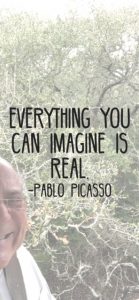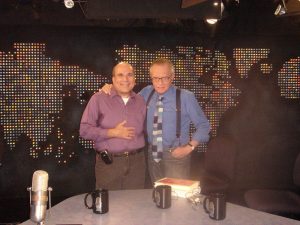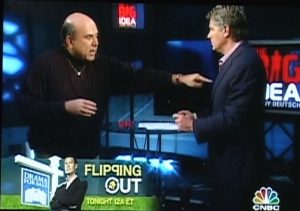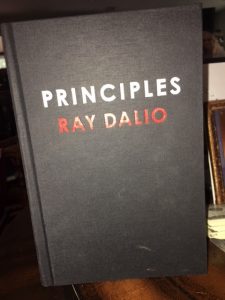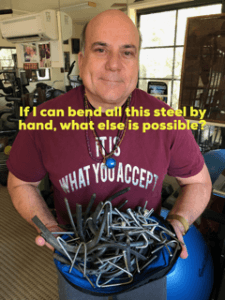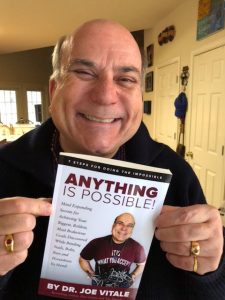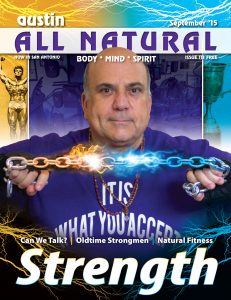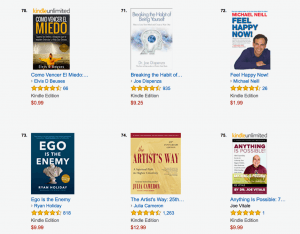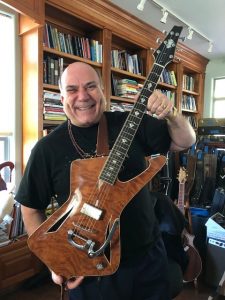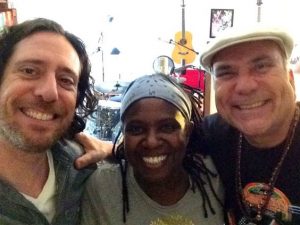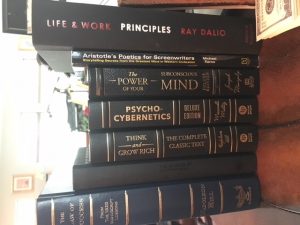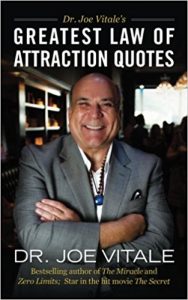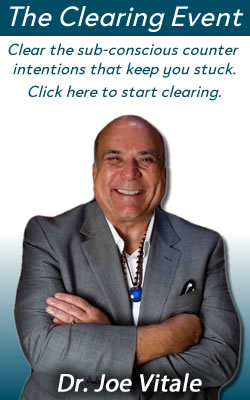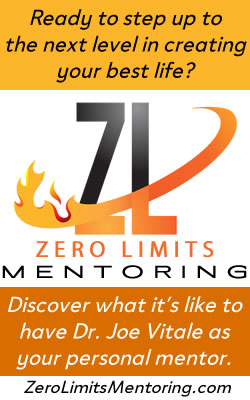Dr. Joe Vitale’s Blog
Bruce Willis Manifesting
I’m not actor Bruce Willis, and I’ve not met him yet, but I know something he may not.
Let’s call it “Bruce Willis Manifesting.”
It’s a way to use your mind to attract what you want.
It’s something you already do when you think of your favorite celebrity, and it’s something you can consciously direct to manifest what you want.
It’s actually a very cool way to speed up the manifestations of your goals, desires and intentions.
Interested?
Let me explain:
Recently a woman was about to interview me, but couldn’t calm down.
“You’re a legend!” she kept repeating. “You’re a legend!”
She was going gaga for me.
But why?
I certainly know the feeling of being star struck in the presence of a celebrity.
I was that way with rock icon Melissa Etheridge.
I was that way with actor James Caan.
Same when actor-bodybuilder Lou Ferrigno came to my house.
I met President Jimmy Carter twice and couldn’t speak either time.
If and when I meet Bruce Willis, I’ll probably be star struck with him, too.
At least for a few minutes.
But why?
I propose the reason you and I are in awe of stars we like is a clue on how to manifest what we want faster.
So give me a moment to explain.
Last year I was invited to act in my first indie movie.
A woman came to my music show last July at The Townsend in Austin.
She heard my Band of Legends and me and afterwards invited me to act in her movie.
I haven’t acted since kindergarten. I was one of the three little pigs in a kids’ play.
But I told this delightful woman I’d do it.
And I did.
It was the movie Cecilia.
When you see it, you might experience the manifestation strategy I’m wanting to discuss here.
But even if you don’t see that movie, maybe you saw me in the movie The Secret.
If not, I’m in about 15 other movies, with three more coming out this year.
And of course I’ve been on Larry King Live national television, twice.
All of this public exposure is making more people recognize me.
And when they do, some are star struck.
I remember landing in Peru and a bunch of people ran up to me.
It spooked me because some of them were security guards.
I thought something was wrong.
But no, they wanted to meet a star from a movie.
They wanted photos.
And autographs.
At baggage claim.
Why?
So let me get back to explaining:
We watch a movie we like.
We see a star we like.
There is emotion.
Our brains “brand” this emotion onto our minds.
We “link” the visual of seeing our favorite star with the emotion of what the movie is triggering in us.
Then, if we ever see our star on the street, the mental switch is triggered.
And we go gaga.
If you don’t know a celebrity, and he or she walks by, you won’t think anything of it. That star hasn’t been inputted into your brain to have any meaning.
There’s no “programming.”
There’s no emotion.
There’s no “link.”
But if you see a celebrity that you go gaga for, that you watch in all their movies, that you feel love for, you will flip out.
This is “Bruce Willis Manifesting.”
Why?
The movie star has activated the Reticular Activator System or RAS in your brain.
Your RAS responds to emotion, imagery, and repetition.
Anything you think about with emotion, imagery, and repetition will act as a new program in your brain.
And you will unconsciously use the Law of Attraction to bring it into your life.
So, if I see Melissa Etheridge on stage, and on television, and on DVD, and I watch her moved by the emotion in her songs and her performances, and I do this repeatedly for two decades, then the day I meet her is going to feel like lightning struck my spinal cord.
And that’s what it felt like when I went to her home for my songwriting lesson with her.
I was star struck.
My RAS had been “Melissa Etheridge” programmed
So let’s take this concept to a deeper level.
I’m a huge fan of actor Bruce Willis.
I’ve seen all his movies, bought all his music, and follow his career.
His movies, from Die Hard to 16 Blocks to Death Wish, all do something for me. (16 Blocks is one of my all time favorite movies.)
Whenever I get to meet him, I’ll probably be star struck and silent, at least at first.
Why?
“I’m really just a regular guy who has had an incredibly blessed life.” – Bruce Willis
Because he’s branded in my brain with the three ways you engage your RAS: imagery, emotion, repetition.
- I’ve seen his movies. (Visual)
- I’ve felt something while watching those movies. (Emotion)
- I’ve watched many of the movies more than twice. (Repetition)
This imagery, emotion and repetition has wired Bruce Willis in my mind.
But you can use this “gaga” switch of the mind to attract more of what you want.
And this is where you should take notes.
You can use this “Bruce Willis Manifesting” Secret
I’ve written about this formula in numerous books, including the brand new one, Anything Is Possible.
In short:
- See it. Imagine what you want to have, do or be.
- Feel it. Imagine using it or living it or being it.
- Repeat. Do this repeatedly.
You have just used the three step system that stars innocently use to get in our heads: imagery, emotion, and repetition.
It’s also the same three things that your RAS requires to make a change.
So we can thank our favorite stars for showing us a way to control our mind.
Your Mental Movie
One way to make this formula work is to create a mental movie of what you want, complete with the sensory experience of imagining that it is all complete and real.
In other words, when you watch a film on television or in the theater, your mind is being programmed.
You are seeing a visual, feeling emotion, and repeating the experience throughout the film.
But you can use this same technique to program your mind intentionally: by creating a mental movie.
By Creating a Mental Movie!
And instead of feeling like a star struck little child when you meet your favorite star, you can thank them for showing you a way to manifest what you want.
And now you know something even Bruce Willis doesn’t know – “Bruce Willis Manifesting.”
What will you create next?
Imagine it.
Feel it.
Repeat it.
Make a mental movie of it and step into it.
And then, Expect Miracles.
Ao Akua
joe
PS – Here’s Bruce Willis showing you how it’s done with emotion, imagery and repetition:
The One Question
My favorite book of last year was Ray Dalio’s bestseller, Principles.
While the book is 600 pages of wisdom and insight from the life experience of a billionaire, the single biggest takeaway for me was this one question –
“How do I know I’m right?”
Dalio learned to question himself and get the feedback of others in order to discover the best answer or action in any situation.
I almost never ask myself that question.
Stay with me for a minute and let’s explore this.
It’s easy to think and come to conclusions, but how do we know our conclusions are logical, practical, and the best of what can help us?
How do we know we aren’t deluding ourselves, or sabotaging ourselves, or missing better answers and solutions?
After all, our thinking happens in a confined inner world created from past experiences and limiting beliefs.
We can’t easily think “outside” of our thinking because we are the ones doing the thinking.
(Meditate on THAT.)
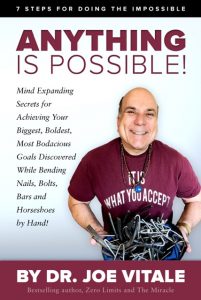
Even your intuition can be misread and misunderstood, as it has to be filtered though your beliefs, too.
A feeling can be a disguised limiting belief.
(Pause to let that sink in, too.)
So, what can we do?
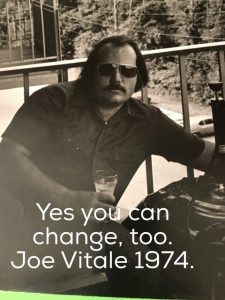
How do you get better answers, clearer decisions, and more reliable ways of seeing your choices?
For me, there are three solutions –
1. Get in a Challenging Mastermind Group.
Being in a select group with eight other people can elevate your thinking and expose you to new ways of thinking. It’s a smart way to pool resources and expand your mental paradigm. A mastermind has been the secret of the greats. I’ve created and been in many masterminds. I’ve even coauthored a book (with Bill Hibbler) on how to make your own mastermind in Meet and Grow Rich. I’m currently putting together an exclusive mastermind of high profile, high achievers to truly challenge us all to stretch and achieve at levels we only imagined before.*
2. Get a Miracles Coach or Zero Limits Mentor.
Having a trained person listen and reflect back to you your thinking can be enlightening and empowering. We rarely hear our own limiting beliefs but someone skilled in active listening can help you discover them with love and focus, and then help you begin to change them. Change your beliefs and you get a different reality. This is the main reason I created Miracles Coaching more than ten years ago and am currently creating Zero Limits Mentoring. A secret to success is to have someone who believes in you almost more than you believe in yourself.
3. Absorb diverse books.
Dalio’s book introduced me to new ideas and a way to question myself. But I also read other books to keep my mind expanding. It’s also why I write mind expanding and consciousness raising books, such as “The Miracle: Six Steps to Enlightenment” and my newest book, “Anything Is Possible: 7 Steps for Doing the Impossible.” Reading has always been a key secret to the success of high profile people.

I’m not here to sell you anything but to remind you that your thinking will be more powerful and much clearer once you allow greater input, and the three ways above can help you achieve that.
I’m sharing this with love.
Act as you feel inspired.
Expect Miracles.
Ao Akua
*Note: If you are interested in my exclusive Rings of Power Mastermind, contact my office or leave a comment below and I will see that you get my new manifesto describing it.
PS -The soulful Lisa Winston interviewed me recently on a subject you will love. Here it is:
Why Anything Is Possible
Consider –
* What would you try if you knew “Anything Is Possible“?
* What goal could you achieve if you knew “Anything Is Possible“?
* What dream could you make come true if you knew the 7 steps proving “Anything Is Possible“?
My latest book is a ball of fire in print.
It’s designed to help you attract, achieve and accomplish all of your dreams, goals and intentions using a new formula for success.
But it also might push your buttons.
It did someone on Facebook.
My new book is called –
“Anything Is Possible!”
It reveals –
“The 7 Steps for Doing the Impossible”
It explains —
This may be the most exciting and inspiring book I’ve written in years. At least in my humble opinion.
Strongman Grandmaster Dennis Rogers said –
“In January of 2017 Joe Vitale attended my annual strongman seminar: Oldetime Strongman University. By the end of the day he had twisted a horseshoe, bent a steel bar into the shape of a fish, and with one blow of his fist – drove a nail so far through a piece of construction lumber that he surprised us all. That morning he left his home as a 63 year-old guy. That evening he arrived home as a Strongman.”
The story of what happened that day, and what I learned afterwards and then applied to all areas of my life, is exactly why you’ll want to go get “Anything Is Possible.”
I’ve had people go get copies of this book in bulk – to give to family, friends, clients and peers – when they haven’t seen the book yet!
They’ve been hearing about my feats of strength, and seeing photos and video of me bending steel, and they want the inside secrets of such extreme accomplishment right now.
I’ve spoken about the stories and insights from the book on stages around the world, from Spain to Thailand, and people stand up and applaud because they get so inspired.
The 7 steps I reveal are unlike anything ever shared before – including by me.
Here’s an excerpt of what Mark Brody (who I don’t know at all) said in his five star public review on Amazon —
“…Joe Vitale goes into what you actually need to be doing in order to be successful. Yes, anything is possible, but there are steps to take in order to get there. Not just sitting there visualizing and wishing upon a star. This is truly a success manual.”
This is new, different, exciting, engaging and oh so much more. But don’t take my word for it. Look what others are saying:
Lisa Winston said this in her five star public review on Amazon —
“If you struggle with setting intentions, keeping commitments, taking action or if you just feel uninspired, ‘Anything is Possible’ will give you all you need to deliberately, methodically, successfully and joyfully achieve absolutely anything you choose to accomplish.”
Erica Garvin said this in her five star public review on Amazon —
“This book was my first introduction to Joe Vitale and his writing. Needless to say, reading this book was a turning point in my life. Never before has a book influenced me more to achieve life long dreams and goals. I believe this book is for anyone, especially those who might feel they are struggling in life and need tested methods to progress forward. Joe truly shows readers that anything that can be imagined can be obtained, and how to do just that.“
Fitness expert and personal trainer Scott York said —
“I loved this book. I learned a lot and laughed a lot at some of Joe’s colorful stories. I was inspired by it all.”
But, as you might imagine, not everyone agrees that “Anything Is Possible.”
Even though the book is urging you to stretch your mind to consider “Anything Is Possible,” some people use the idea to create limitations.
SIGH.
One person on Facebook posted the question, “What if you lose an arm and you want to grow it back, do you think anything is possible then too?”
I found it odd that someone would go to the outer limits of extreme examples to argue for limitations.
Richard Bach wrote, “Argue for your limitations and sure enough, they’re yours.”
Then I thought, given our current understanding of limb regeneration, growing an arm seems unlikely.
But that thought also assumes there will be no new research, or discovery, or inventions, ever.
EVER?
Obviously, life will continue to evolve and new discoveries will always be made.
In fact, that flippant question on Facebook got me curious.
I did a quick Google search on “human limb regeneration” and easily found this article posted on January 3 2018 at https://humanlimbregeneration.com/human-limb-regrowth-with-acorn-worm-dna:
“A group of scientists have been involved in a recent study in researching how human limb regrowth could one day be applied with the help of the Acorn Worm. They are looking at how amputees could regrow limbs and for patients to regenerate the spinal cord after injury.”
See what I mean?
There is always the possibility of something new being discovered or created.
So with that more empowering and optimistic belief, and that Google evidence, I stand by my book title: “Anything Is Possible.”
I’m saying it might happen.
I’m saying it could happen.
I’m saying it’s possible.
I’m saying “Anything Is Possible.”
And why not believe in possibilities rather than limitations?
Why not “Dare Something Worthy”?
Why not go for your dreams?
Why not tackle the big challenges of life with a mindset focused on solutions, not limitations?
“We have more power than will; and it is often by way of excuse to ourselves that we fancy things are impossible.” – Francois Duc De la Rochefoucauld
After all, people are creating new limbs using 3-d printers. That’s happening right now. (For proof, read Mick Ebeling’s great book Not Impossible: The Art and Joy of Doing What Couldn’t Be Done.)
I can’t help but wonder what’s next. Maybe it’s the Acorn Worm. Maybe it’s something else.
In my same Google search about “human limb regeneration,” there was a 2016 article at https://www.livescience.com/59194-could-humans-ever-regenerate-limbs.html that said –
“Human regeneration, he (professor David Gardiner) said, is likely still in the future, but not too far off — it’s possible one of his current graduate students or postdoctoral researchers will crack it, and limb regeneration will be a part of the medical toolkit.”
Are we living in exciting times or what?
“Everything is theoretically impossible, until it is done.” – Robert A. Heinlein
So much for the critical skeptic who posted his/her question on Facebook.
Obviously, Anything IS Possible.
My new book reveals “7 Steps for Doing the Impossible.”
But you are welcome to believe in lack and limitation instead.
Up to you.
The T-shirt I’m wearing on the cover of my new book shares my motto:
“It is what you accept.”
You can accept a victim mindset – “It is what it is” – or you can adopt a more empowered mindset – “It is what you accept.”
Your choice.
As philosopher/psychologist William James once said, “Belief creates its verification in fact.”
In short, you get what you believe.
If you are open minded, and want to believe in possibilities, my new book is now available on Amazon in print (and/or for your Kindle reader) and you can go get it right now at — https://www.amazon.com/dp/
Expect Miracles (unless you prefer to Expect Crap).
Ao Akua,
PS – Be honest: What would you do if anything really was possible?
The Dream Guitar
In late 2014 I challenged guitar builder Tony Nobles to create a visionary Dream Guitar.
But I didn’t want it to be my dream guitar.
I wanted it to be HIS dream guitar.
Three years later, Tony succeeded.
He announced, “There is no guitar like this on the planet.”
I’ve now seen it.
And played it.
And he’s right.
It’s a masterpiece.
Let me tell the story behind it:
Tony has been building guitars for almost thirty years. He’s made them for celebrity musicians such as Joe Walsh, Ray Wylie Hubbard, Alejandro Escovedo and others.
He’s also made them for lesser known collectors and players, like me.
I have a collection of a hundred old and new guitars by great luthiers, known and unknown.
Some of them (to name drop) are Bean, Baldwin, Collings, DK, Manzer, Maton, Versoul, D’Angelico, Veillette, Bacce, McElroy, Teye, Oxbow, Huss & Dalton, PRS, Santa Cruz, Fylde, Gigliotti, Trenier, Tesla, Trussart, and Zemaitis, as well as vintage Martin and Gibson models.
I’ve also seen impressive private collections, like that of rock icon Melissa Etheridge.
Guitars are playable art.
And sometimes a good investment.
I love them.
And no, you can never have enough.
I suspected a luthier with Tony’s decades of experience might be open to a bold idea.
I wondered –
What if I acted like a patron saint of the arts and commissioned him to create something visionary from his own mind, not mine?
Tony accepted the challenge in 2014.
For the next two years he read, thought, dreamed and wondered.
He also came to my home and spent a day examining my own collection, from the Fylde guitar made out of a former Scotch whiskey barrel, to Danelectros with their lipstick pickups, to an Oxford Guitars baritone electric made from gem stones and prehistoric wood.
I would also supply Tony with coffee table sized books about some of the greatest guitars of all time.
One book in particular became the resource for what would become the Dream Guitar.
The book was a hefty volume called Archtop Guitars: The Journey from Cremona to New York.
It displayed artistic photos and inside stories of museum quality guitars from three legends, D’Angelico, D’Aquisto and Monteleone. I had bought it from Rudy Pensa, the author and owner of Rudy’s Music in SOHO in New York.
Tony would later tell me, “Whatever I created had to be of the caliber of these guitars in this book, else what was I doing?”
Fast forward to October 20, 2016.
After almost two years of research and incubation, Tony showed me a sketch of an idea.
It was a light pencil outline on a torn off sheet of butcher paper, but I could see the vision being born.
The 1970’s Ibanez “Iceman” guitar inspired Tony. Paul Stanley of KISS made the Iceman electric famous.
“I like how that guitar sits well on your knee,” Tony explained. “Builders often forget the guitar has to be comfortable.” (Tony is a player, too, being in the band The Beaumonts.)
But that was only the beginning.
He knew he wanted an archtop, like those in the Pensa book, and he wanted an electric pickup.
My only request when I commissioned this guitar was a Bigsby or whammy bar. I love them.
Otherwise, Tony had a blank canvas to create per inspiration and will.
Tony was now off and running.
Using sinker log redwood, rare Brazilian Rosewood, and more, he began to carve and build what would become the world’s first Dream Guitar.
“I wanted the fret system to be different,” he says, “so I used what’s called True Temperament.”
Those are “wiggly” shaped frets that look odd but help the guitar stay in tune better and longer.
Things got even more unique when it came to the pickup.
“The Austin Sidewinder pickup was made specifically for this guitar by Bob Palmieri of Duneland Labs in Chicago,” Tony says. “I’ve never heard anything like it.”
When I finally saw the Dream Guitar in late December 2017, right before Christmas and just days before my 64th birthday, my jaw dropped.
But then I held it.
The guitar is feather light.
I thought of the term “floating guitar.” Tony says it’s less than five pounds. It sat on my leg as if it was tailor made to fit my knee.
Playing it was a surprise, too.
Each note has a distinct ring, and a sustain that is clear, rich, and drawn out.
The odd shaped frets weren’t even noticeable as anything different as I played, and may have made my chord fingering easier.
Guitar Monk Mathew Dixon, who I’ve made several bestselling instrumental albums with, was with me for the unveiling of the Dream Guitar.
He said, “Tony has undoubtedly created a masterpiece.”
I agree.
I play the guitar every single day.
It’s already inspired two new songs.
And it’s inspired a new instrumental album that Guitar Monk and I have started “allowing” to happen.
The Dream Guitar is, well, a dream.
I saw that Tony had stretched in making this guitar.
Tony told me, “The little push you gave me down the path of uncertainty really did spur some growth.”
For me, seeing a man exceed his perceived boundaries and go pass tradition was inspiring and gratifying.
My books, music, coaching, mentoring, and presentations are all encouragements to do more and be more, to dream and achieve.
Even the album I made with Grammy nominated singer Ruthie Foster, and producer Daniel Barrett, was all about stretching, so much so that we called it Stretch.
And the new book I have coming out soon about strongman feats of strength, titled Anything Is Possible, is all about exceeding what we think is impossible.
I feel I succeeded in inspiring a builder to stretch, just as his one-of-a-kind Dream Guitar is now succeeding in inspiring me to create and play new music.
Maybe consider:
What would you do if you forgot tradition, perceived limits, and everyone’s expectations of what was possible – including your own?
Ao Akua
PS – Tony Nobles can be reached at https://www.facebook.com/tony.nobles.5
Note: The professional photos of the Dream Guitar were by Rodney Bursiel.
Bonus: Here’s a 23-minute video about the making of the Dream Guitar:
Principles of Ray Dalio
The best book I read in 2017 was probably Ray Dalio’s Principles.
I say ‘probably’ as I read a bookstore full of books a year, and many get lost in the shuffle of turning pages.
If a book stands out, I tweet about it.
If it really sits up and rolls over, I write a blog post about it.
Dalio’s Principles made the cut for 2017.
I don’t know Dalio personally and actually never heard of him at all before I read his book.
He’s a billionaire entrepreneur and investor. He’s highly respected and successful.
After a lifetime of paying attention to what works in business and life, he compiled his “Principles.”
Apparently they were first put online.
They were downloaded over three million times.
When his book came out in 2017, it went to #1 on the NY Times bestsellers list.
Why did I buy the book when I didn’t know Dalio or his work?
A strong intuitive nudge urged me to preorder it.
Something about the title just said, “Read this next.”
As I’ve learned to do, I acted on that impulse.
And I’m glad I did.
The book is huge at almost 600 pages.
And it’s packed with wisdom.
I felt I was reading a software manual for life.
While Dalio sometimes comes across as a computer programmer, he’s actually more of a keen observer of life. As he finds insights that hold true, he writes them down as Principles.
Underneath Dalio’s drive is a prime directive that basically reminds him that he doesn’t know it all.
But the combined mind power of others could help him see objective reality and make clearer decisions.
At his TED2017 talk, he says, “Rather than thinking, ‘I’m right,’ I started to ask myself, ‘How do I know I’m right?’”
I love this question.
“How do I know I’m right?”
I love it because it’s so easy to deceive ourselves with our own thinking.
We can be illogical and not even know it.
When I coach or consult people, I often hear them say things they don’t hear as limitations. Until they invite outside input, they will continue to believe their own limitations.
It’s because thought is circular until you invite objective input.
Dalio solved this quirk of human nature by creating a way to judge the merit of an idea.
You don’t judge the person or the situation.
You judge the idea.
He calls it idea meritocracy.
Finding the merit of an idea.
One of the most unforgettable passages in the hefty book is when Dalio is told he has to have his esophagus removed.
Remaining as detached as he could, he decides to measure the merit of that recommendation.
He finds four other medical experts.
They all openly share.
They agree to a retest.
The result is Dalio kept his esophagus and changed a few basic lifestyle habits.
But he may have lost it due to the first doctor had Dalio not questioned the merit of his recommendation and been open to other experts opinions.
There’s abundance in this book.
I’ve folded back pages and underlined passages.
There’s no way I can memorize all his material. I have to keep a few basic principles in mind, such as –
“Reality is optimizing for the whole – not for you.”
“Pay attention to people’s track records.”
“Make your passion and your work one and the same and do it with people you want to be with.”
“Train your ‘lower-level you’ with kindness and persistence to build the right habits.”
“Almost nothing can stop you from succeeding if you have (a) flexibility and (b) self-accountability.”
Those principles seem stark and naïve sitting alone on the page.
Of course, those are only a handful of his principles and you’ll need to read his book to understand them.
But the book is friendly, easy, deep, and unforgettable.
Out of the thousands of books I’ve read and still own, only a handful make it to my desk, sitting at arms reach, to be seen or grasped at will.
They include legends, like Napoleon Hill’s Think and Grow Rich and Maxwell Maltz’s Psycho-Cybernectics.
Today I am placing Ray Dalio’s Principles in that little lineup of success classics.
Ao Akua,
Joe
PS – See my “Best Books Ever” list of 2015 at https://www.mrfire.com/law-of-attraction/best-books-ever/ for a sense of the books I read and like.

